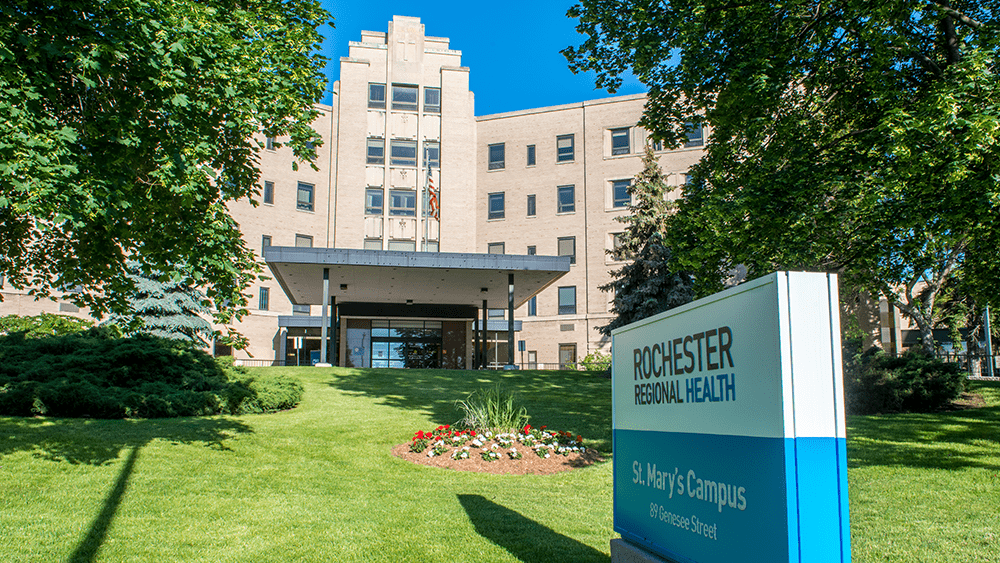
People experiencing a sudden mental health crisis may not know where to turn for assistance. Some estimates suggest more than 80 percent of patients seeking mental health care come to emergency departments and primary care clinics.
While patients are evaluated and treated at these locations, behavioral health crisis centers feature specialized behavioral health care clinicians and specifically-tailored resources, which are available as soon as you walk through the door.
Rochester Regional Health runs the Behavioral Health Access and Crisis Center (BHACC) – the only available crisis center in the Rochester area.
As an example, if an individual needs medical care but the condition is not so immediate that it warrants visiting an emergency room, an urgent care facility would be an appropriate place to seek treatment.
Providers describe the BHACC as similar to an urgent care facility, but for mental health intervention services. Crisis centers provide more immediate resources and treatment options for people in a behavioral health crisis compared to a typical therapist visit, but are less intrusive than being admitted to an emergency department.
“Our Crisis Center is a means to link patients with services for mental health in a non-intrusive setting without them needing to be admitted to an in-patient clinic,” said Joe Majauskas, Director of Acute Services at BHACC.
Located at the St. Mary’s Medical Campus on Genesee Street, the BHACC is open from 9 am – 9 pm, seven days a week, 365 days a year. This includes all major holidays.
Anyone looking to speak with someone on staff can call 585.368.3950.
Once a person arrives at the center, they are greeted by a receptionist, clinician, or peer – in a setting similar to arriving at a doctor’s office. After being asked to fill out a small amount of paperwork, a therapist will be available to meet with them in person in a short period of time.
The therapist will perform a risk assessment to make sure the person is safe. This will include questions about:
Based on the conversation, the therapist will find the best avenues to provide the help that the person needs. This could be any number of resources, as well as referrals to mental health providers, chemical dependency providers, or care managers.
“People coming through our doors will experience a shorter wait time, interact with fewer people, and do it all in a more calm and therapeutic setting compared to an emergency room,” said Melissa Shoemaker, LCSW, Program Manager at BHACC.
Services through BHACC are currently available for adults ages 18 and older. In the near future, Rochester Regional Health plans to offer chemical dependency services through the center, in addition to expanding behavioral health services for children ages five and older.
